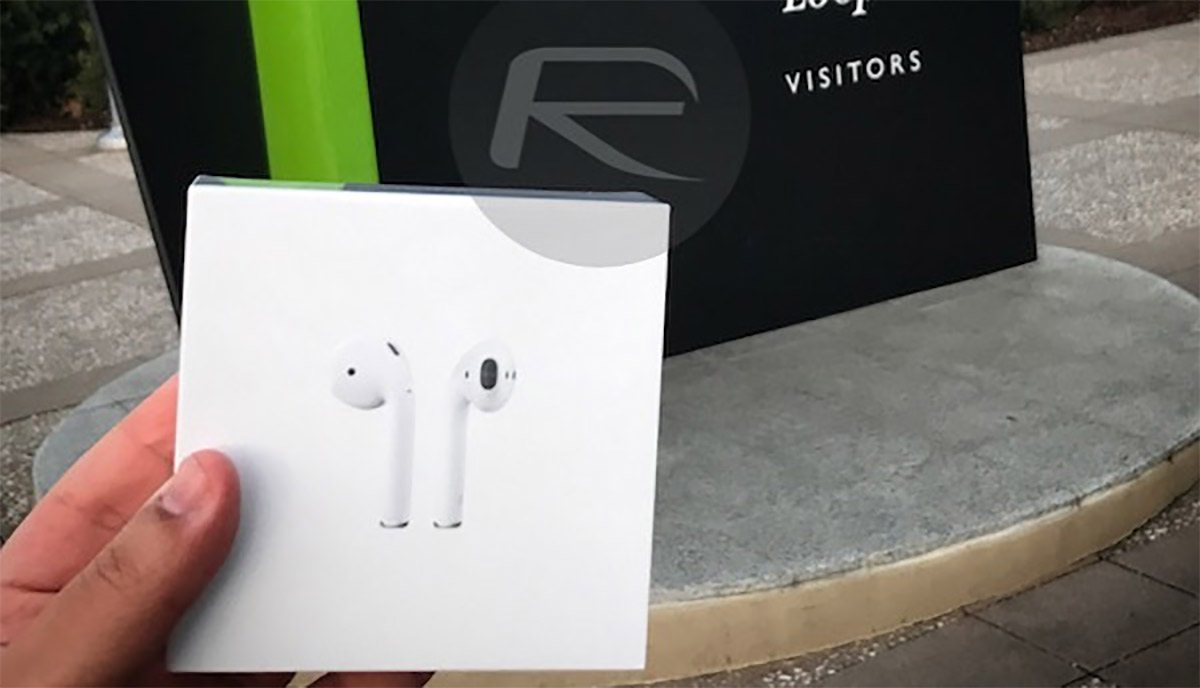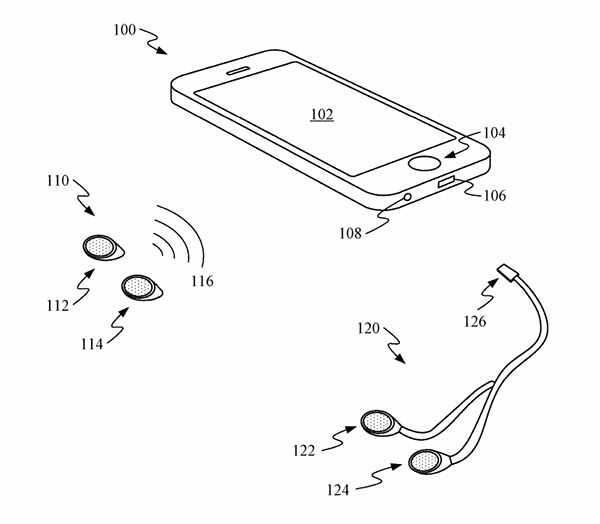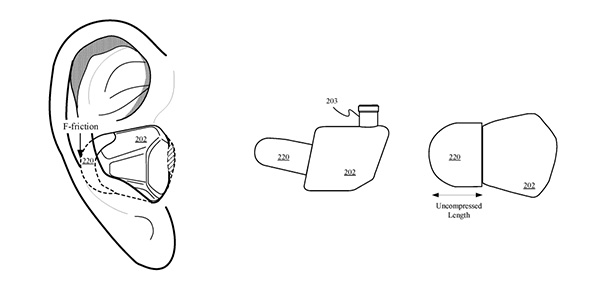We’ve heard of an Apple patent application that could allow for headphones that could be worn any way with no dedicated left or right ear cup, and now another newly granted patent appears to suggest the same feature could be coming to new AirPods, too. The feature would take advantage of “at least one” biometric sensor that would allow the AirPod to detect which ear it was placed in, meaning it could then tailor its audio output accordingly.
Specifically, the patent suggests that the earbuds would be worn interchangeably, thanks to sensors and circuity.

This application relates to earbuds configured with one or more biometric sensors. At least one of the biometric sensors is configured to be pressed up against a portion of the tragus for making biometric measurements. In some embodiments, the housing of the earbud can be symmetric so that the earbud can be worn interchangeably in either a left or a right ear of a user. In such an embodiment, the earbud can include a sensor and circuitry configured to determine and alter operation of the earbud in accordance to which ear the earbud is determined to be sitting in.
Recent reports have analyst Ming-Chi Kuo claiming that new AirPods will arrive early next year with a complete revamp coming at some point in 2020. It’s likely that anything coming out of this new patent would be part of that 2020 refresh, with the current AirPod design simply unable to offer the features that the patent speaks of.
With AirPods currently Apple’s most popular accessory, improving upon an already hugely successful formula will not be easy, nor will getting existing owners to upgrade unless the refreshed feature set is sufficiently expanded to warrant spending an extra $150 or, as is entirely possible, $199.


(Source: USPTO)
You may also like to check out:
- How To Downgrade iOS 12.1.1 To iOS 12.1
- Download iOS 12.1.1 Final IPSW Links And OTA Update For iPhone And iPad
- iOS 12.1.1 Final Changes, Release Notes And Features: Here’s What Is New
- Jailbreak iOS 12.1 / iOS 12 Update: Sandbox Escape Released To Public
- Jailbreak iOS 12.1.1 / 12.0.1 / 12 On iPhone And iPad [Status Update]
You can follow us on Twitter, add us to your circle on Google+ or like our Facebook page to keep yourself updated on all the latest from Microsoft, Google, Apple, and the Web.

